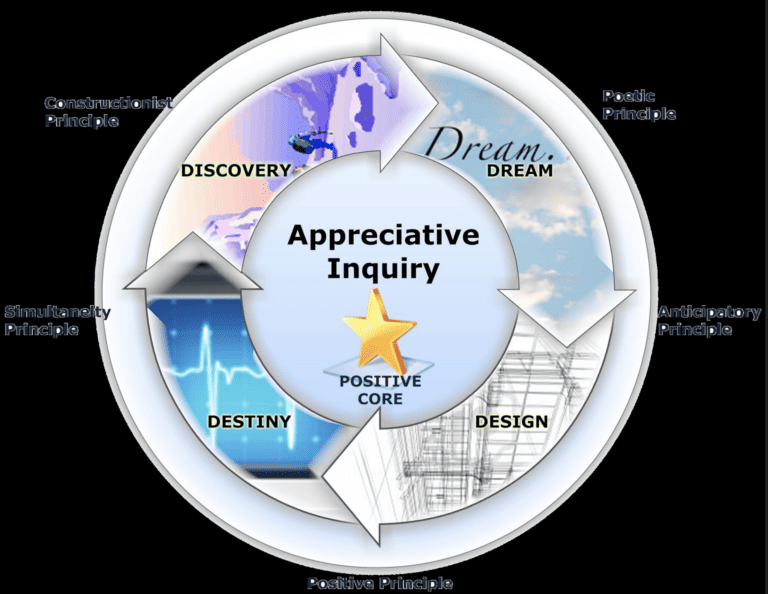Strategies for Managing Workplace Stress With Emotional Intelligence
|
Getting your Trinity Audio player ready...
|
In today's fast-paced and demanding work environments, managing workplace stress has become a critical skill for professionals across industries.
The ability to navigate and effectively address stressors through emotional intelligence has emerged as a key component of personal and professional success.
By understanding and applying emotional intelligence strategies, individuals can develop a resilient and adaptive approach to managing stress in the workplace, leading to improved performance, well-being, and overall job satisfaction.
Key Takeaways
- Emotional intelligence is crucial for managing workplace stress and fostering healthy relationships.
- Recognizing triggers and developing coping skills are essential for managing workplace stress.
- Building resilience and coping skills are important for maintaining well-being.
- Cultivating self-awareness, self-regulation, empathy, and compassion contribute to managing workplace stress effectively.
Understanding Emotional Intelligence
Understanding emotional intelligence is crucial for effectively managing workplace stress and fostering healthy relationships among colleagues.
Emotional intelligence encompasses the ability to recognize, understand, and manage our own emotions, as well as the capacity to perceive and influence the emotions of others.
In the context of managing workplace stress, understanding emotions is essential for identifying the triggers that lead to stress and developing effective coping mechanisms.
By being attuned to our emotions, individuals can better navigate the challenges and pressures of the workplace, leading to improved resilience and reduced stress levels.
Moreover, emotional intelligence enables individuals to empathize with their colleagues, creating a supportive and nurturing work environment.
This, in turn, fosters healthy relationships and effective communication, ultimately mitigating stress and enhancing overall well-being within the workplace.
Recognizing Triggers and Responses
To effectively manage workplace stress, it is essential to develop the ability to recognize the triggers that lead to stress and understand our responses to them. Identifying these triggers and managing our responses with emotional intelligence can significantly improve our overall well-being and productivity in the workplace.
Here are three key strategies for recognizing triggers and responses:
- Self-awareness: Developing emotional awareness allows individuals to identify the specific situations, events, or interactions that trigger stress. By understanding our emotional responses to these triggers, we can begin to implement effective stress management techniques.
- Communication: Open and honest communication with colleagues and supervisors can help in recognizing triggers. Discussing potential stressors and working together to find solutions can create a more supportive and understanding work environment.
- Mindfulness: Practicing mindfulness techniques can aid in recognizing triggers as they arise and managing our responses in the moment. Techniques such as deep breathing, meditation, and grounding exercises can help individuals remain calm and focused during stressful situations.
Building Resilience and Coping Skills
In today's fast-paced and demanding work environments, building resilience and coping skills is essential for maintaining mental and emotional well-being.
Resilience is the ability to bounce back from adversity, while coping skills are the strategies we use to manage stressors effectively.
Resilience Through Adversity
Developing resilience and coping skills is essential for navigating through challenging times in the workplace, allowing individuals to adapt and thrive in the face of adversity.
Here are three key strategies for building resilience and coping skills:
- Mindfulness Practices: Engaging in mindfulness activities such as meditation and deep breathing can help individuals manage stress and develop a more resilient mindset.
- Seeking Support: Encouraging open communication and seeking support from colleagues, mentors, or mental health professionals can provide valuable insights and guidance in overcoming challenges.
- Adapting to Change: Embracing change as an opportunity for growth, rather than a threat, can foster resilience and improve coping skills when facing adversity.
Coping With Stressors
Navigating workplace stress and developing resilience and coping skills is a crucial aspect of maintaining productivity and well-being in professional settings. Coping with stressors requires effective stress management strategies and the ability to address workplace challenges proactively. Building resilience is essential for individuals to bounce back from setbacks and adapt to change. Here are some key coping skills and resilience-building strategies that can help employees manage workplace stress more effectively:
| Coping Skills | Resilience Strategies | Stress Management Techniques |
|---|---|---|
| Time Management | Cultivating Optimism | Mindfulness Meditation |
| Problem-Solving | Building Social Support | Physical Exercise |
| Emotional Regulation | Developing Flexibility | Relaxation Techniques |
Cultivating Self-Awareness and Self-Regulation
Understanding and managing our own emotions is a crucial skill in navigating workplace stress and fostering a productive work environment. Cultivating self-awareness and self-regulation can significantly impact our ability to handle stressors effectively. Here are three key strategies for developing these essential emotional intelligence skills:
- Self-Reflection: Take time for self-reflection to gain a deeper understanding of your emotional triggers, stress responses, and behavioral patterns. Self-reflection allows you to recognize how your emotions influence your decisions and interactions in the workplace, empowering you to make conscious choices in managing them.
- Emotional Control: Practice emotional regulation techniques such as deep breathing, mindfulness, and positive self-talk to manage stress and prevent emotional hijacks. By acknowledging and regulating your emotions, you can maintain composure during challenging situations, leading to more constructive problem-solving and communication.
- Feedback Solicitation: Seek feedback from trusted colleagues or mentors to gain insights into how your emotions and reactions impact others. Actively listening to feedback can help you identify blind spots and areas for improvement, enabling you to refine your self-regulation strategies and enhance your overall emotional intelligence.
Cultivating self-awareness and self-regulation not only equips individuals to cope with workplace stress but also contributes to building a more harmonious and resilient organizational culture.
Developing Empathy and Compassion
In fostering a supportive and collaborative work environment, the cultivation of empathy and compassion among individuals is essential for enhancing team dynamics and overall organizational well-being. Empathy development is a critical component of emotional intelligence that allows individuals to understand and relate to the feelings of others. It involves active listening, perspective-taking, and the ability to provide genuine support and understanding. Compassionate leadership plays a pivotal role in modeling empathetic behavior and creating a culture of kindness and understanding within the workplace. Leaders who demonstrate compassion are more effective in building trust, resolving conflicts, and fostering positive relationships among team members.
| Key Aspects of Empathy Development | Benefits of Compassionate Leadership | Strategies for Cultivating Empathy and Compassion |
|---|---|---|
| Active Listening | Enhanced Team Collaboration | Encouraging open communication and empathy workshops |
| Perspective-taking | Improved Employee Morale | Leading by example and acknowledging individual experiences |
| Genuine Support | Increased Trust and Loyalty | Promoting a culture of kindness and understanding |
| Understanding | Conflict Resolution | Recognizing and appreciating diverse perspectives |
Cultivating empathy and compassion within the workplace not only reduces stress and conflict but also enhances overall employee well-being and organizational success.
Effective Communication and Conflict Resolution
Fostering effective communication and implementing successful conflict resolution strategies are crucial components of cultivating a harmonious and productive work environment. In today's fast-paced and dynamic workplaces, it's essential to prioritize clear and open communication to avoid misunderstandings and promote a positive organizational culture.
Here are three key strategies for enhancing effective communication and conflict resolution:
- Active Listening: Encouraging active listening within teams can significantly improve communication by ensuring that all parties feel heard and understood. This involves giving full attention to the speaker, asking clarifying questions, and summarizing the main points to demonstrate understanding.
- Constructive Feedback: Providing constructive feedback in a respectful and constructive manner is vital for addressing conflicts and improving performance. It's important to focus on specific behaviors or situations, offer actionable suggestions for improvement, and acknowledge the individual's perspective.
- Mediation and Collaboration: Establishing a formal process for mediation and collaboration can help resolve conflicts in a fair and unbiased manner. This approach allows all involved parties to express their concerns, work towards a mutually beneficial solution, and rebuild trust and rapport.
Mindfulness and Stress Reduction Techniques
With the foundation of effective communication and conflict resolution in place, an exploration of mindfulness and stress reduction techniques becomes a natural progression to further enhance the well-being and performance of employees in the workplace.
Mindfulness exercises are valuable tools for managing stress and promoting a balanced work environment. Encouraging employees to engage in mindfulness practices such as meditation, deep breathing exercises, or yoga can help alleviate stress and improve focus. These techniques allow individuals to cultivate a sense of awareness, enabling them to better understand and regulate their emotions in stressful situations.
Additionally, incorporating stress reduction techniques such as time management training, setting realistic goals, and promoting work-life balance can significantly contribute to reducing workplace stress. Providing employees with the resources and support to effectively manage their stress can lead to a more harmonious and productive work environment.
Setting Boundaries and Prioritizing Self-Care
How can individuals in the workplace effectively set boundaries and prioritize self-care to manage stress and enhance overall well-being?
Setting boundaries and prioritizing self-care are essential for managing workplace stress. Here are three key strategies to help individuals achieve this:
- Clear Communication: Communicate your boundaries clearly and assertively with colleagues and supervisors. Clearly express what you can and cannot take on, and be firm in your commitments. This will help prevent work overload and minimize unnecessary stress.
- Time Management: Prioritize self-care by scheduling regular breaks, exercise, and relaxation time. By allocating time for self-care activities, individuals can recharge and maintain a healthy work-life balance, thus reducing the negative impact of workplace stress.
- Learn to Say No: It's crucial to recognize when taking on additional tasks may compromise your well-being. Learning to say no when necessary is not a sign of weakness; rather, it demonstrates self-awareness and self-respect. Understanding your limits and respecting them is vital for maintaining a healthy work environment and personal well-being.
Building Supportive Relationships and Networks
Building supportive relationships and networks is crucial in navigating workplace stress. Trusting work relationships can provide a sense of security and understanding, while reliable support networks outside of work can offer a different perspective and emotional support.
Nurturing connections with colleagues and friends can create a positive environment that fosters resilience and effective stress management.
Trusting Work Relationships
Developing trustworthy and supportive work relationships is essential for managing workplace stress and fostering a positive and productive work environment. Building trust and fostering collaboration in the workplace is crucial for creating a supportive network that can help individuals navigate challenges and reduce stress.
Here are three key strategies to cultivate trusting work relationships:
- Open and Honest Communication: Encouraging transparent and open communication helps in building trust among colleagues and fosters an environment where everyone feels heard and valued.
- Empathy and Understanding: Cultivating empathy towards coworkers and understanding their perspectives fosters a supportive work environment and strengthens relationships.
- Team Building Activities: Engaging in team-building exercises and activities can help employees build rapport, strengthen connections, and develop a sense of trust and camaraderie.
Reliable Support Networks
In today's fast-paced and demanding work environments, cultivating reliable support networks is crucial for fostering resilience and well-being among employees. Peer support plays a vital role in creating a sense of belonging and understanding, allowing individuals to share experiences and strategies for coping with workplace stress. Additionally, regular manager check-ins provide employees with the opportunity to discuss their concerns, seek guidance, and receive constructive feedback, thus strengthening their sense of support and connection within the organization. Building supportive relationships and networks not only enhances individuals' ability to manage stress but also contributes to a positive and inclusive work culture. The table below outlines additional strategies for developing reliable support networks in the workplace:
| Support Networks Strategies | Description |
|---|---|
| Peer Support | Encouraging open communication and collaboration among colleagues. |
| Manager Check-Ins | Regular one-on-one meetings to address concerns and provide guidance. |
Nurturing Connections
Amidst the dynamic demands of the modern workplace, fostering connections and supportive relationships becomes increasingly essential for promoting resilience and well-being among employees. Building trust and nurturing connections are pivotal in creating a supportive work environment.
Here are three key ways to foster connections and supportive relationships in the workplace:
- Encouraging open communication: Promoting an environment where employees feel comfortable sharing their thoughts and concerns can help build trust and foster connections.
- Creating opportunities for collaboration: Encouraging teamwork and providing platforms for employees to collaborate on projects can strengthen relationships and create a sense of unity.
- Offering support programs: Implementing mentorship programs, employee assistance initiatives, or peer support groups can provide avenues for employees to connect and seek support, ultimately nurturing a supportive network within the organization.
Applying Emotional Intelligence in Leadership
Leadership effectiveness is greatly enhanced by the application of emotional intelligence, allowing leaders to navigate complex workplace dynamics with empathy, insight, and analytical acumen. One of the key leadership challenges is to inspire and motivate a diverse team while maintaining a harmonious work environment. Emotional intelligence applications can help leaders understand and address the individual and collective emotional needs of their team members, fostering a more cohesive and productive work atmosphere.
| Challenges | Emotional Intelligence Applications |
|---|---|
| Inspiring and motivating a diverse team | Recognizing and addressing individual motivational factors, fostering a sense of belonging and purpose within the team |
| Maintaining a harmonious work environment | Managing and resolving conflicts, promoting open communication and trust among team members |
| Navigating complex workplace dynamics | Understanding the emotional undercurrents at play, making informed decisions that consider the emotional impact on the team |
Conclusion
In conclusion, the application of emotional intelligence in managing workplace stress is crucial for individual and organizational well-being.
Research has shown that employees with high emotional intelligence are 20% more productive than those with lower emotional intelligence.
By implementing strategies such as self-awareness, resilience building, and empathy, individuals can effectively navigate workplace stress and contribute to a healthier work environment.
It is imperative for leaders to model and promote emotional intelligence to create a supportive and productive workplace culture.







